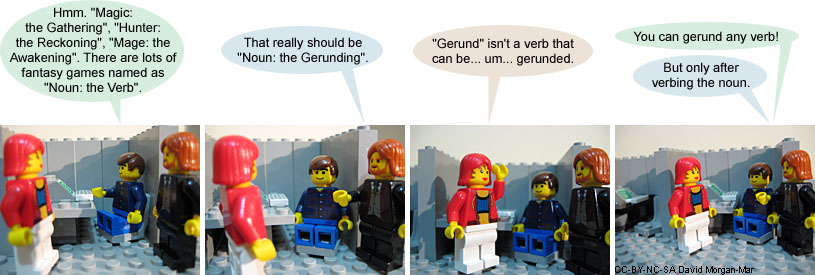More bad grammar books published
It is an exhausting business trying to keep up with the extraordinarily dumb content of the continuing flow of truly awful grammar texts as the amateurs crank them out. I am so grateful to Brett Reynolds for having shouldered some of the burden by putting reviews of recent ghastlies on his blog English, Jack. He has discussed the over-loose definition of "phrase" in the Longman Dictionary of Language Teaching and Applied Linguistics; he has critiqued Eric Henderson's Writing by Choice; he has excoriated Ron Cowan's The Teacher's Grammar of English in at least four posts, this one, this one, this one, and this one; he has done battle with the "Grammatically Speaking" column from TESOL's Essential Teacher magazine; and there are other posts accessible from these. He is fighting the good fight. Thank you, Brett. When I say that grammar books are being written by the incompetent and published by the blind or uncaring, I do not exaggerate. Just take a little time to read Brett Reynolds on this topic.
Permalink Comments off


